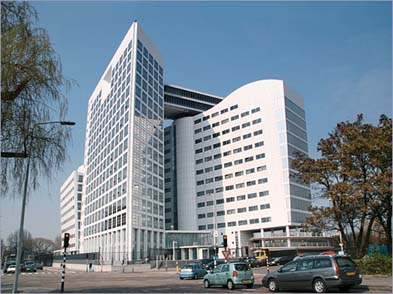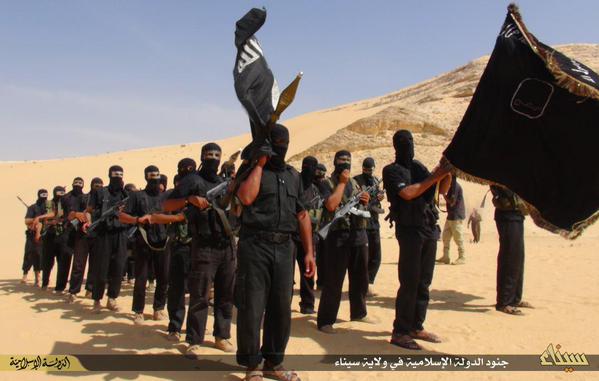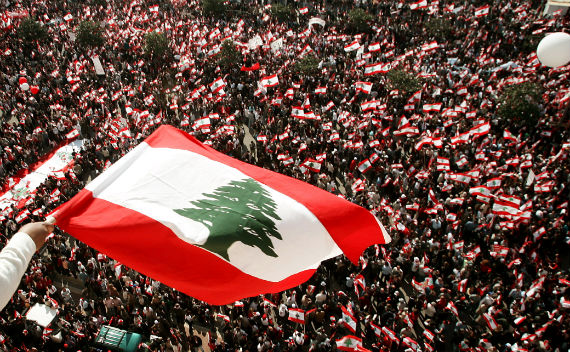December 10, 1948 marked the moment that, 64 years ago, the United Nations signed the Universal Declaration of Human Rights at its 183rd plenary meeting in Paris. The hopes were to enshrine the rights of each individual after witnessing the horrors of World War II. This hasn’t been an easy task and history since that day is fraught with abuses from the signing of that declaration to the present.
The question of how the Declaration has fared since its signing can be examined through the lens of the situation in Israel and the Palestinians. No issue has galvanized and captured the attention of the international community as this issue has and it was perhaps no coincidence that just two weeks before the anniversary of the signing of the Declaration the Palestinians had sought, and were granted, ‘non-observer state’ status before the UN.
Palestinian Authority (PA) President, Mahmoud Abbas, brought the resolution forward under the umbrella of the PLO and not the PA, which he is the head of. Abbas did so because the PLO has had UN observer status since 1974 and because Palestinian leadership remains divided between Fatah in the West Bank and Hamas in the Gaza Strip. This move ensured the State of Palestine recognizes the territories of Palestine along the 1967 borders and the territories that go with it. While Abbas’ government does not have control of all of this territory, with Hamas in charge of the Gaza Strip and Israel occupying territory beyond the borders of 1967, it will retain the claim to this land.
One of the perceived victories of the resolution was the ability of the Palestinians to bring Israel before the International Criminal Court (ICC), established in 2002, under the Court’s four core crimes: genocide, crimes against humanity, war crimes and the crime of aggression. But such a process is not that simple.
By achieving the step of being recognized as a ‘‘non-member state’’ in the General Assembly, the State of Palestinians has met the criterion of the former Prosecutor of the ICC, Mr. Luis Moreno-Ocampo, for recognition of statehood under article 12(3) of the Rome Statute. Moreno-Ocampo set the criteria after the Palestinians’ request for the ICC to investigate accusations of Israeli war crimes after Operation Cast Lead in 2009 was turned down over questions of whether Palestine constituted a state. In instances, such as this, the question was turned over to the UN and the General Assembly. The November 29th vote, despite its “non-member state” status falling short of “full member status”, clarified the issue.
And yet, hurdles remain. There is no guarantee that by simply bringing an application to the ICC that action will be taken. The State of Palestine appears to have the status necessary as a ‘non member state’ to join the ICC but questions could still arise over whether it meets the criteria on the ground. If this test is ultimately met, the next step would be to bring an application before the UN Secretary General requesting that the Palestinian State become a party to the Rome Statute, similar to the move that was rejected in 2012.
The real fear for those states that objected to the vote on the 29th of November was that by gaining ‘non-member state’ status, and ultimately joining the ICC, the door would be open to granting jurisdiction retroactively to the date when the ICC and Rome Statute came into force on the first of July, 2002. This would encompass the 2009 Cast Lead aggressions of Israel, as well as the most recent conflict in Gaza. This is also why the UK and France sought assurances that the Palestinians would not go to the ICC prior to the vote. As initial signatories of the Universal Declaration of Human Rights, the two States have received stinging criticism of a move that many argue is contradictory.
However, ceding jurisdiction to the ICC has a flip-side to it, one that Abbas may not be able to control. If the State of Palestine and its territories were to fall under ICC jurisdiction, this would also include militants and insurgents that use violence against civilian populations. With no control over Gaza and arguably a lack of a monopoly of force over the West Bank, there is no certainty that the move to the ICC would not do equal amounts of damage to Abbas’ government and the Palestinians.
Ms. Fatou Bensouda, the present Prosecutor of the ICC, has stated clearly that there are no clear answers to what the future holds in store. She noted that the State of Palestine must first bring an application to the ICC for consideration. The implications of such a move to international law, and even international relations, would then need to be weighed. The hurdles would be dramatic and the case would need to be strong. Ms. Bensouda is therefore unable to comment on a process that has yet to occur.
At present, these are big “ifs” that lie with Abbas and his administration. It should not be forgotten that Abbas is also a political leader fighting to maintain his relevance amidst dwindling support for his leadership. He is also the leader who bowed to international pressure to defer action on the UN Human Rights Council’s Goldstone Report, investigating potential war crimes during 2009’s Operation Cast Lead in Gaza. Abbas went on to make a stunning U-turn after strong domestic opposition and push through for the Report to be voted on by the Human Rights Council, which passed it.
The Report led to recommendations for independent inquiries by both Hamas and Israel by the GA. This was a vital step to take before the Report could theoretically go on the UN Security Council, which would then recommend the issue to the ICC. However, it is expected that any recommendation to the Security Council would be rejected by the veto holding permanent five members, who do not think the Council should deal with the Report or its implications. The path to the ICC has proven an instructive example in mirroring the Palestinians’ process to “full member state” status – status that can only be granted with unanimous UNSC approval.
In yet another twist, the ICC Prosecutor could seek a judgment from Pre-Trial Judges to see if the Report could be tried without UN Security Council approval. Mr. Luis Moreno-Ocampo ruled out such a move by reverting the question of statehood to the GA. The GA responded by overwhelmingly approving the move for “non observer state” status. Ms. Fatou Bensouda, while refusing to show her cards on the issue, is waiting for the PA and Abbas to take the first step. Where Abbas will go is still to be decided. Israel, meanwhile, has frozen tax transfer payments to the Palestinians to join its passing of building settlements in zone E1.
The pursuit of human rights, as enshrined in the Universal Declaration of Human Rights, remains a lofty pursuit. While nothing is so simple, especially as it relates to Israel and the Palestinians, how the following months and years play out will shape whether Abbas’ move was a desperate move of a leader trying to remain relevant in the face of stagnating negotiated options or if there is room for lofty ideals in the realm of realpolitik.
Gus Constantinou is a freelancer writer at the UN.




